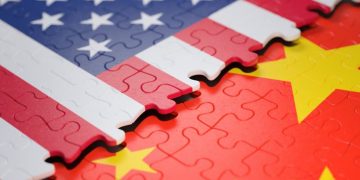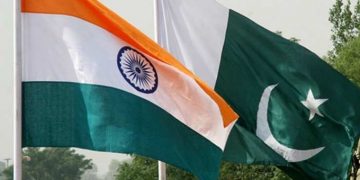Santosh Kumar Mohapatra
Normally, to extricate an economy from recession or slowdown, governments adopt expansionary macroeconomic policies. They increase money supply, reduce cost of credit by lowering interest rate, enhance government spending, and decrease taxes to stimulate demand. Better liquidity and lower interest rate are now advocated to spur consumption. But, India’s economic slump is far too deep to be tackled merely by tinkering with interest rates.
In 2019, to revive growth, the RBI has reduced repo rate four times (amounting to 1.10 per cent) to a 9-year-low of 5.4 per cent. But despite rate cut, neither has growth revived nor consumption demand been spurred. Rather, growth has declined. The rate cut has helped corporates reduce cost of borrowing and maximise profit, while adversely affecting savers. One’s borrowing capacity does not depend solely on interest rate; it depends on his/her repayment capacity, which is linked to income or purchasing power. Rise in personal indebtedness (or borrowings) faster than incomes, according to RBI data, reflects decline in purchasing power and sordid living standards of people, which is an important cause of decline in demand.
Another option before the government is to provide fiscal stimulus to propel demand and help the economy recover. But given the resource constraints owing to the inability to tax the rich and curb tax evasion, the government is helpless. Another option may be to allow higher fiscal deficit and to monetise by printing more currency. This practice, though, may lead to inflationary spiral but could enhance public expenditure and create jobs.
The government has introduced a series of stimulus measures to bolster growth, including the rollback of tax surcharge on overseas investors, relaxation in foreign direct investment (FDI) norms and merger and recapitalisation of banks. Though infusion of capital in banks is a worldwide phenomenon, mergers are no solution. They will dampen the saver’s confidence in the government.
The other measures will in no way curb slowdown; rather they will expose the economy to global vicissitudes as the economy is affected by global crisis through three distinct channels: financial markets, trade flows and exchange rates. Some are going to benefit corporates and not the masses; they may appease foreign investors who were spooked by the surcharge hike announced in the budget. On September 14, Nirmala Sitharaman announced Rs70,000 crore package to crank up exports and to provide relief to the real estate sector; but details are sparse. The easing of norms for external commercial borrowing will adversely affect internal credit creation.
However, no incentive or sop should be given to corporates as they are seeking benefits during a crisis instead of helping the government by parting with their profits. They instead push the government towards anti-labour measures in the name of tackling crisis. Chief Economic Adviser Krishnamurthy Subramanian has rightly pointed out that stimulus to industry creates a moral hazard. Companies should desist from grabbing profits and socialising losses.
In a savings-oriented economy such as India, investment will solely be led by savings and not consumption. Consumption acts as a force-multiplier, but is not the key driver of growth in a low-per capita economy. Investment is key to the creation of jobs. If private investment is lacking, government investment should be escalated.
Higher investment is possible only if savings rate is enhanced. Under UPA-1, India had higher growth owing to higher savings and not higher FDI or higher disinvestment proceeds. The dent in savings rate has affected investment and growth. One reason for low investment is that the capacity utilisation of the economy has been around only 75 per cent.
Domestic savings rate has fallen from 34.6 per cent of GDP in 2011-12 to 30.5 per cent in 2017-18. The fall in the household savings rate has been sharper, from 23.6 per cent to 17.2 per cent during the same period. Net financial savings, which provides capital to government and corporates at cheaper rates, has declined from 7.2 per cent of the GDP in 2011-12 to 6.5 per cent in 2017-18.
Another important reason for the slowdown is the rise in inequality. The 26 richest people on earth in 2018 had the same net worth as the poorest half of the world’s population, some 3.8 billion people. In India, the 9 richest Indians have wealth equivalent to what 50 per cent of people in the country hold. The rich lead luxurious lives, invest in shares or siphon money off to tax havens.
If the wealthy can be taxed, large amounts of resources can be generated and spending enhanced to revive growth. The distribution of wealth and creation of jobs stimulate the economy. For example, if there are 1,000 people who earn Rs30,000 each per month, all of them may purchase a vehicle, a television set or a house, among other things. But if one person holds the wealth equivalent to those thousands, s/he will never purchase as many goods.
Public expenditure, especially in the social sector, should be propped up, especially as private expenditure is declining. Putting money into the hands of people in rural areas is the best way to alleviate rural distress, stimulate demand and spur the economy. This is feasible by reinvigorating MNREGA and its wage structure. Also, more jobs should be created in the organised sector as elevated educated unemployment levels have social repercussions and triggers rise in crimes.
Recession is a vicious circle. Retrenchments will further aggravate the situation. To avoid losses, companies need to reduce salaries of the highly paid. When a job is lost, services and businesses lose a customer or buyer. An insurance company employee, for instance, is the customer of a bank, while an employee of a bank would be the customer of an insurance company. Sustaining high growth is impossible in a world of finite resources. What is important is the distribution of wealth already created and emphasis on happiness, peace and improvement of social indicators.
The writer is an Odisha-based columnist and economist. e-Mail: skmohapatra67@gmail.com.






































